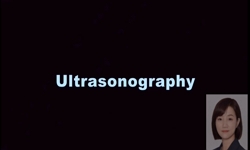Background: Ultrasonographic imaging is very useful tool to determine various neoplasms and inflammatory changes of the human body. In addition, thanks to the use of various frequencies in ultrasonography, subcutaneous and some dermal lesions can be e...
http://chineseinput.net/에서 pinyin(병음)방식으로 중국어를 변환할 수 있습니다.
변환된 중국어를 복사하여 사용하시면 됩니다.
- 中文 을 입력하시려면 zhongwen을 입력하시고 space를누르시면됩니다.
- 北京 을 입력하시려면 beijing을 입력하시고 space를 누르시면 됩니다.


피하 결절들에 대한 초음파 검사의 유용성 연구 = Study for Usefulness of Ultrasonography in the Evaluation of Subcutaneous Nodules피하 결절들에 대한 초음파 검사의 유용성 연구
한글로보기https://www.riss.kr/link?id=A75570140
- 저자
- 발행기관
- 학술지명
- 권호사항
-
발행연도
2007
-
작성언어
-
- 주제어
-
KDC
500
-
등재정보
SCOPUS,KCI등재
-
자료형태
학술저널
- 발행기관 URL
-
수록면
529-533(5쪽)
- 제공처
-
0
상세조회 -
0
다운로드
부가정보
다국어 초록 (Multilingual Abstract)
Background: Ultrasonographic imaging is very useful tool to determine various neoplasms and inflammatory changes of the human body. In addition, thanks to the use of various frequencies in ultrasonography, subcutaneous and some dermal lesions can be evaluated without invasive procedures such as a biopsy. Objective: This study was performed to evaluate the usefulness of ultrasonography in the diagnosis of subcutaneous nodules. Methods: We reviewed the medical records of 29 patients with subcutaneous nodules and analyzed the correlation between ultrasonographic findings and final biopsy findings. The HDI-5000 ultrasonography system (Philips, Eindhoven, Netherlands) with variable probes (from 5 to 12 MHz) was used in this study. Results: In 27 patients, ultrasonographic findings were matched with final biopsy findings. One pilomatricoma was misdiagnosed as a cyst and one hemangioma as lipoma. It was very interesting to find that two malignant tumors and one subcutaneous granuloma annulare were detected by ultrasonographic examination in the absence of any clinical clues. Conclusion: Ultrasonography is a very useful, noninvasive, easy to apply, and relatively predictive tool for the evaluation of subcutaneous nodules. Although a skin biopsy is necessary for final diagnosis, ultrasonography would be a good substitute in the diagnosis of subcutaneous nodules when the patient refuses a skin biopsy and the nodule is located in a highly cosmetic area. (Korean J Dermatol 2007;45(6):529∼533)
동일학술지(권/호) 다른 논문
-
민감성 피부에서 부식성 및 비부식성 자극물질에 의한 피부자극에 관한 비교연구
- 대한피부과학회
- 이보현 ( Bo Hyun Lee )
- 2007
- SCOPUS,KCI등재
-
- 대한피부과학회
- 홍승필 ( Seung Phil Hong )
- 2007
- SCOPUS,KCI등재
-
필러로 호전을 보인 전신성 경피증에 의한 소하악증 및 소순증
- 대한피부과학회
- 정세영 ( Se Yeong Jeong )
- 2007
- SCOPUS,KCI등재
-
- 대한피부과학회
- 김태환 ( Tae Hwan Kim )
- 2007
- SCOPUS,KCI등재




 KISS
KISS


